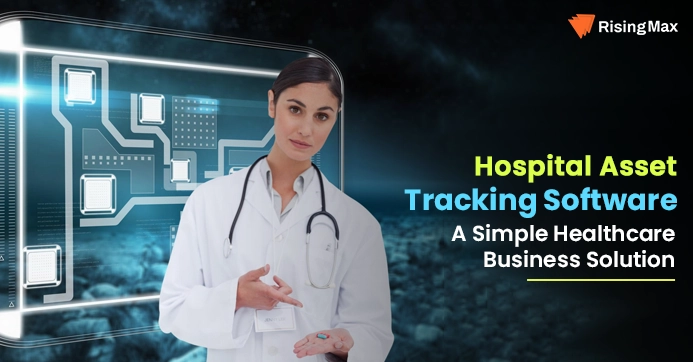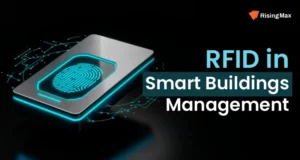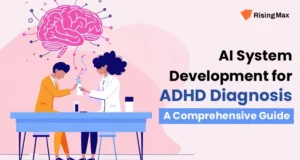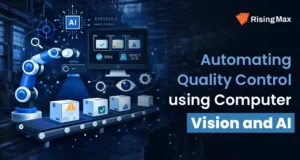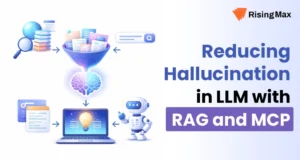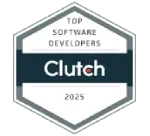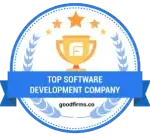The healthcare sector comprises diverse operations such as pharmaceutical and medical equipment suppliers, public healthcare institutions like the National Health Service (NHS), private hospitals, and retirement homes. These various operations house numerous assets, ranging from hundreds of thousands to even millions.
Managing assets efficiently can be challenging when dealing with patients, suppliers, and employees under intense pressure.
Keeping track of healthcare assets is vital for hospitals to maintain an adequate supply of medical goods and know when, where, and how hospital assets are utilized. Healthcare facilities should consider introducing an asset tracking system, whether a spreadsheet-based system or dedicated software, to counter this.
However hospitals cannot rely on manual asset tracking, as it is complicated, with chances of mistakes, and difficult to get real-time information. Hospital asset tracking software provides information that can be utilized to reduce asset-acquiring costs and save time on locating equipment.

If you run a hospital or a healthcare facility, you clearly understand the importance of asset-tracking software. And if you are planning to develop your own hospital asset tracking system, then we at RisingMax Inc. can be your perfect healthcare software development partner. Leveraging our hold in next-gen technologies and domain expertise enables our team to build customized healthcare management software solutions. Reach out to our experts to discuss your hospital asset-tracking software requirement today.
What Is Blockchain-Powered Hospital Asset Management Software?
Blockchain technology transforms hospital asset-tracking software by introducing unparalleled security and transparency. Utilizing a decentralized ledger ensures that asset records are tamper-resistant and accessible in real-time. This enhanced security is particularly critical in healthcare settings where asset data integrity is paramount.
Asset tracking software is commonly used in the healthcare industry for tracking medications, tools, and healthcare equipment. These healthcare solutions provide real-time location of hospital assets and availability, thus reducing search time and loss of assets.
Hospital asset tracking system is integrated with IoT or RFID technology to track and provide real-time data on asset location and status. Real-time monitoring of assets assures healthcare staff that assets will always be available when needed.
Blockchain-powered systems provide a trustworthy and immutable record of asset transactions, reducing the risk of errors and fraud. Additionally, smart contracts can automate asset-related processes, streamlining operations and fostering a more efficient and accountable asset management system within hospitals.
Build Your End-to-End Solution For Healthcare Asset Management
We bring years of experience in latest tech development to guide you through all major aspects of a hospital asset tracking solution—from tech nuances to the business side.
Types Of Medical Assets That Can Be Tracked
Hospital asset tracking software accommodates various assets crucial to healthcare operations. This includes:
Medical Equipment
Hospital asset tracking software efficiently monitors the lifecycle of medical equipment, ensuring timely maintenance and minimizing downtime. It includes tracking parameters like usage frequency, maintenance schedules, and current location to enhance operational efficiency.
Pharmaceuticals
Asset tracking extends to pharmaceuticals, ensuring the secure and compliant movement of medications within the hospital. This includes monitoring inventory levels, expiration dates, and distribution to prevent shortages or wastage.
IT Infrastructure
The software manages and secures the hospital’s IT infrastructure, including computers, servers, and other technological assets. This ensures the availability and security of essential systems, contributing to the overall reliability of healthcare services.
Facility Resources
Hospital asset management encompasses tracking facility resources such as furniture, fixtures, and physical assets. This includes optimizing the utilization of resources, tracking conditions, and managing the lifecycle for cost-effective operations.
Patient Records
Beyond physical assets, the software also facilitates the traceable movement of patient records and sensitive information. Ensuring the security and transparency of patient data is critical for compliance and maintaining patient confidentiality.
The Architecture of Hospital Asset Management Software
Healthcare asset management software is equipped with technologies like barcodes, RFID, QR codes, and others. RFID is a cost-effective option that allows healthcare facilities to track medical assets from PPE to X-ray machines and other devices.
Image source: https://www.researchgate.net/figure/Overall-architecture-of-the-asset-tracking-system_fig2_327560727
Components of Our Hospital Asset Tracking Software
RFID Tags
These tags are attached to the hospital assets making it easy to track the exact location of an asset with RFID readers.
RFID Readers
The information stored in the RFID tags attracted to different hospital assets is read by RFID readers and shared on to the cloud server. The information shared can be assessed by anyone, and the real-time location of hospital assets can be traced.
Data Lake
Data in large amounts related to hospital assets are stored in Data Lake and can be easily accessed to analyze assets movement, use, etc.
Data Analytics
The stored information can be readily accessed to find out asset usage, asset availability, and gain actionable insights.
Business Logic
Implementing business logic empowers hospital asset tracking software to process the request for medical equipment, display asset location and raise alerts on high-priority events.
Admin Panel
Hospital tracking software comes with an in-built admin panel, where information related to the listing of tracked assets, their real-time information, granting access and rights related to hospital assets to administrative staff, etc.
Do you know?According to Fortune Business Insights, the global healthcare asset management market size, which stood at $11,002.50 million in 2019 projected to reach $84,483.03 million by 2027. The market is expected to grow at a CAGR o 28.9% during the forecast period 2019-27.Benefits of Healthcare Asset Tracking Software
A healthcare facility should always make decisions that advocate patient well-being and enhance patient care. For this very reason, while healthcare facilities implement healthcare asset tracking software, they are usually concerned about its benefits to the overall system. In this section, you will read about the benefits of healthcare asset tracking solutions and how it enhances hospitals’ care and efficiency.
Prioritize Patient Care
Although hospital asset management software is not directly linked with patient care, it enables healthcare facilities to prioritize patient care. With real-time asset tracking, the hospital staff is cutting down the waiting time and providing patients enhance level of care they deserve.
Reduce Waiting Time
The real-time tracking of hospital assets with asset tracking software allows healthcare staff to quickly reach out to medical equipment and focus on providing patient care. With information related to medical equipment available in real-time, healthcare staff will attend to patients faster and thus reducing waiting time.
Real-Time Asset Location
Integration of healthcare asset management software, allows staff to keep track of hospital assets via mobile phones or desktops. In addition, this software assists in tracking asset usage, maintenance time, breakdown data, and other details. This information can be leveraged later on for effective asset tracking, creating a maintenance plan, and reducing equipment breakdown time.
Appropriate Resource Usage
With hospital asset tracking solutions, healthcare facilities can ensure that every hospital resource is utilized appropriately. The asset tracking solutions provide a detailed overview of when, where, and how hospital resources are being utilized.
Swift Data Sharing
Software solutions for asset tracking in hospitals makes it easy for healthcare facilities to keep track of hospital assets and view their usage. Real-time sharing of data related to hospital assets allows healthcare staff to enhance the quality of healthcare services and efficiently serve them.
Manage Inventory
Hospital asset tracking solutions make it easy for admins to real-time access information related to hospital assets and track their usage. This information can be leveraged to manage inventory levels and make decisions related to hospital assets.
Predictive Maintenance
Healthcare asset management software provides information on how different assets are performing and alerts if there’s an issue. This allows the admin to create a roadmap for predictive maintenance to reduce equipment breakdown time and replace faulty equipment to enhance system efficiency.
Enhance asset visibility, streamline usage monitoring, and safeguard against expiry, loss, and theft. Let’s build a smarter future together.
Intriguing Features Of Our Hospital Asset Tracking Software
Underutilization or overutilization of hospital assets is one of the major concerns in healthcare facilities worldwide. Often doctors and healthcare staff end up using the same equipment for longer as compared to others. To address this concern, healthcare asset tracking software has integrated features like healthcare inventory management to ensure proper utilization of hospital assets. Some of the intriguing features of our hospital asset tracking software include the following;
Check-In/Check-Out
This feature of our hospital asset tracking system makes it easy to view each hospital asset’s check-out and check-in time. The data stored can be leveraged to analyze the usage of different hospital assets.
Search Filters
Hospital staff and admin can use this feature to find any particular asset with their name, tags, or any other information. Real-time availability of data related to each hospital’s asset assists in the timely re-ordering of necessary medical equipment.
Order Inventory
Our hospital asset tracking solution makes it easy for admins to keep track of medical equipment and inventory levels. The software will send notifications via email or text in case inventory levels decline below a particular level.
Usage Monitoring
This feature of hospital asset tracking software raises an alert if a medical asset is overused. With real-time asset monitoring, admins can ensure the correct usage of medical equipment and order in case there’s an increase in demand.
Analytics & Reporting
Our healthcare asset tracking software comes with integrated analytics and reporting features to represent collected data in the form of a pie chart or bar graph.
Maintenance Reminders
This healthcare asset tracking software feature eliminates the need to track hospital assets and create a preventive maintenance roadmap. An effective monitoring system will send maintenance reminders based on asset usage extending equipment life.
Data Storage
Our hospital asset tracking software ensures secure storage of information related to hospital assets, such as asset description, usage history, maintenance schedule, and others. The admin can view this information to take necessary action.
Hospital Asset Management Software Development Process
The development process of hospital asset tracking software is a meticulous journey that encompasses several key stages:
Blockchain Integration
Blockchain is integrated to fortify the security and transparency of the asset tracking system. The decentralized nature of blockchain ensures that asset records are tamper-resistant, providing an immutable ledger for all transactions.
Asset Categorization
A systematic approach is implemented for categorizing different types of assets within the hospital. This categorization enhances organization, making tracking and managing assets easier based on their characteristics and usage.
Smart Contracts Implementation
Smart contracts are integrated into the system to automate various asset-related processes. This includes automating maintenance schedules, compliance checks, and other routine tasks and enhancing operational efficiency.
Testing & Quality Assurance
Rigorous testing is conducted to ensure the asset-tracking software’s reliability, security, and optimal performance. This includes functional, security, and performance testing to address potential issues before deployment.
Training & Adoption
Training sessions are conducted for hospital staff to ensure proficient usage of the asset tracking software. User training is crucial for maximizing the benefits of the system, reducing errors, and fostering widespread facility adoption.
Post-Implementation Support
Ongoing support addresses emerging needs and ensures compliance with evolving regulations. Regular updates and refinements are delivered to adapt the software to changing requirements and advancements in technology.

How Much Does Hospital Asset Tracking Software Development Cost?
In the USA, most software development companies charge $45,000 to $50,000 for hospital asset-tracking software with RFID technology. While evaluating the overall project development cost, healthcare software development companies carefully analyze various cost-deriving factors.
Leading cost-deriving factors that directly impact the cost of healthcare asset management software development cost are;
- Type of healthcare business
- Software features
- Technology stack required
- Software development company’s location
- Development team strength
- Project development time
- Integrated security features
- Add-on features
Similar to any business application development, companies carefully analyze clients’ requirements, development needs, and the above factors, before sharing an exact app development cost.
Are you searching for an exact hospital asset-tracking software development quote? Then, connect with our experts at RisingMax Inc. and share your project idea. Our team of health experts will analyze your software development needs and share a customized cost ASAP.Why Choose RisingMax Inc. For Healthcare Asset Tracking Software Development?
RisingMax Inc. is a top healthcare software development and consulting service provider in NYC, USA. Over the years, we have assisted healthcare clients in building and integrating next-gen solutions that include workforce management, patient portal, telehealth app, and others. We leverage our domain expertise to build advanced healthcare software solutions for our worldwide clientele. With more than 150 healthcare solutions, we empower businesses to integrate advanced technologies and be future-ready.
Here’s why you should hire us;
- Unmatched domain expertise.
- Cost-effective healthcare software development services.
- Certified healthcare development team.
- HIPPA-compliant healthcare solutions.
- Highly secure and reliable software.
- Transparent pricing policy.
- 24*7 tech support
Healthcare is one of the few sectors where integrating next-gen technologies can do wonders. Reducing the time to provide healthcare services even for seconds if not minutes with the help of technology can do wonders for the entire sector.
Why wait?
Reach out to our experts and discuss your healthcare software idea over FREE consultation call-in details.
